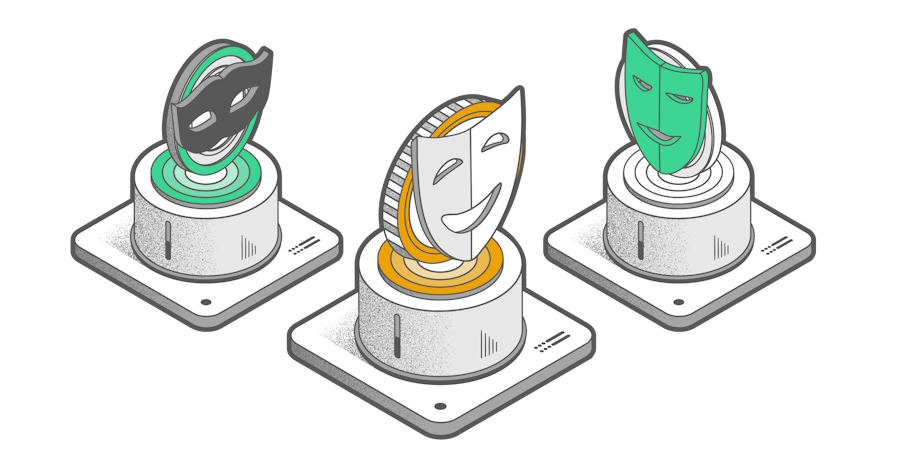
As we navigate an increasingly data-driven world, the concept of anonymous payments emerges as a potent force reshaping the dynamics of financial interactions. With growing apprehensions about data breaches, surveillance, and identity theft, the allure of conducting transactions in a discreet, untraceable manner gains significance. By exploring the benefits, use cases, challenges, and innovations surrounding these privacy-focused transactions, we embark on a journey to comprehend the transformative power that anonymity can wield in the realm of modern finance.
Enhancing Financial Privacy through Anonymous Payments
In a world where our every digital move is scrutinized and tracked, the significance of maintaining personal privacy has surged to the forefront. Anonymous payments have emerged as a potent solution, offering a multitude of advantages for individuals and businesses in an era riddled with data breaches and invasive surveillance.
Enhanced Personal Privacy: Anonymous payments provide a cloak of secrecy, shielding users from prying eyes and unwarranted financial scrutiny. By eliminating the need to disclose personal information during transactions, individuals can keep their spending habits, preferences, and financial history hidden from prying third parties. This newfound privacy empowers users to retain control over their financial data, enabling them to make purchases, donations, and transactions without the fear of being monitored or profiled.
Protection against Identity Theft: Identity theft has become an all-too-common menace in the digital age. Anonymous payments act as a safeguard against this threat by severing the direct link between payment and personal details. Without access to personal information, malicious actors are thwarted in their attempts to steal sensitive financial data, reducing the risk of falling victim to identity theft.
Counteracting Discrimination: In a world where financial histories are often scrutinized for lending decisions and opportunities, anonymous payments offer a level playing field. By obfuscating transaction records, these payments prevent discrimination based on spending habits or financial background. This has the potential to reshape how individuals are assessed for various services, ensuring that opportunities are based on merit rather than financial history.

Pioneering the Future: Advancements in Privacy-Focused Technologies
As the demand for enhanced privacy in digital transactions grows, technology innovators have risen to the occasion, propelling the evolution of anonymous payments through ingenious solutions. These advancements address the limitations that traditional methods often pose, revolutionizing the way we approach financial privacy.
Privacy Coins: Cryptocurrencies like Monero, Zcash, and Dash are leading the charge in bolstering transaction confidentiality. Privacy coins utilize advanced cryptographic techniques that obscure transaction details, ensuring that sender, receiver, and transaction amounts remain confidential. By employing intricate protocols, these coins grant users an unprecedented level of privacy, elevating the concept of anonymous payments to new heights.
Decentralized Finance (DeFi) Solutions: DeFi platforms have garnered considerable attention for their role in revolutionizing financial services. In their quest to provide an alternative to traditional banking, these platforms are embracing privacy features. Smart contracts, private pools, and anonymity-preserving protocols are being integrated into DeFi systems, enabling users to access financial services without compromising their data integrity.
Zero-Knowledge Proofs: At the heart of cryptographic innovation lie zero-knowledge proofs – a groundbreaking technique that allows one party to prove a fact to another without revealing the underlying information. This technology has found its way into anonymous payments by enabling transaction verifications without disclosing transaction details. By validating transactions while keeping them encrypted, zero-knowledge proofs ensure the utmost privacy.

Navigating the Nexus: Balancing Privacy and Regulation in Anonymous Payments
In the realm of anonymous payments, the delicate equilibrium between personal privacy and regulatory compliance becomes a critical focal point. As the allure of confidential transactions collides with the need for oversight, striking the right balance emerges as a complex challenge that requires careful consideration.
Importance of Balance: The importance of a harmonious coexistence between privacy and regulation cannot be overstated. While anonymous payments empower users with newfound control over their financial information, the absence of oversight could inadvertently open doors to illicit activities. Finding equilibrium ensures that privacy remains paramount while curbing potential misuse.
Efforts for Responsible Usage: Governments and organizations worldwide are taking proactive steps to guide the responsible usage of anonymous payments. Legislative frameworks are being crafted to accommodate these novel transaction methods while preventing abuse. Organizations are embracing Know Your Customer (KYC) and Anti-Money Laundering (AML) measures, ensuring that anonymity doesn’t compromise security.

